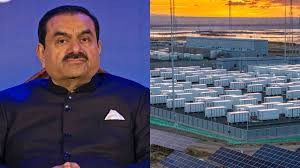Trade War Poses Bigger Challenge Than COVID for Emerging Market Central Banks, Says IMF’s Gita Gopinath
IIE DIGITAL DESK : The significant statement underscoring the evolving risks facing global economies, International Monetary Fund (IMF) First Deputy Managing Director Gita Gopinath has said that trade wars now represent a more severe challenge than the COVID-19 pandemic for central banks in emerging markets. Her remarks highlight how the threat from geopolitical tensions and fractured global trade relationships may have longer-lasting economic repercussions than the health crisis.
Speaking at an international economic policy forum, Gopinath explained that while the COVID-19 pandemic had caused an extraordinary shock to both supply and demand, central banks across emerging economies had managed to respond decisively through coordinated monetary and fiscal measures. In contrast, she argued, trade wars present a more structural and persistent threat, especially as they erode global cooperation and disrupt long-established supply chains.
According to Gopinath, "COVID-19 was a temporary global crisis with a clear endgame driven by vaccines and medical solutions. Trade wars, on the other hand, represent an ongoing erosion of the multilateral trading system and can fundamentally damage productivity and inflation dynamics over the long term."
The IMF official stressed that rising trade protectionism, retaliatory tariffs, and strategic decoupling between major economies like the United States and China have already begun to shift trade flows and investment decisions globally. For emerging markets, which rely heavily on export-led growth and foreign capital, the impact of these disruptions can be disproportionately damaging.
She noted that central banks in these economies are now grappling with uncertainty not just over inflation and interest rate policies but also on how to navigate external shocks triggered by trade tensions. Many emerging markets are also dependent on imports for essential goods, including food, energy, and intermediate industrial inputs. Any disruption in these supply lines due to trade disputes can lead to inflationary pressures that are beyond the control of domestic monetary policy.
Gopinath also pointed out that the fragmentation of the global economy into competing trade blocs could lead to inefficiencies and reduced investment, as firms and countries are forced to duplicate supply chains and adopt non-economic criteria for trade and investment decisions. This not only weakens overall productivity but also makes it harder for emerging markets to benefit from globalization.
She added that central banks in developing economies will face an increasingly complex policy environment as they attempt to balance currency stability, inflation targeting, and economic growth amid external shocks from trade disputes. Unlike during the pandemic, when there was a degree of international coordination, geopolitical tensions have created a more divisive and unpredictable global landscape.
Her comments come amid growing concerns over the breakdown of global trade norms, with new rounds of tariffs, export restrictions, and investment controls being imposed between major economies. The United States has introduced several measures targeting Chinese tech and manufacturing sectors, while China has responded with its own restrictions. These moves are reshaping the way goods and services move across borders, often leaving smaller economies with little room to maneuver.
Gopinath called for renewed multilateral engagement and the strengthening of global trade institutions like the World Trade Organization (WTO). She emphasized that open, rules-based trade remains essential for global economic growth and poverty reduction—especially for emerging and developing nations.
Her warning is a wake-up call to policymakers in both advanced and developing economies, who must now prepare for an era where geopolitical risks could rival or even surpass health crises in their economic impact. With global growth still fragile post-pandemic and inflation pressures persisting in many regions, Gopinath’s statement serves as a timely reminder that economic fragmentation may become the defining challenge of the next decade.
You might also like!
















